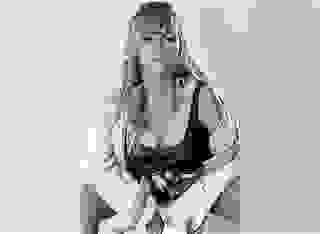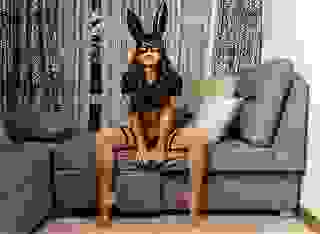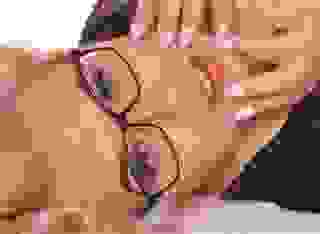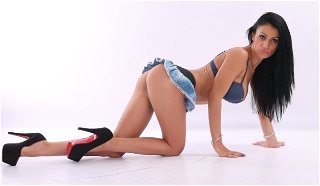Note: You can change font size, font face, and turn on dark mode by clicking the "A" icon tab in the Story Info Box.
You can temporarily switch back to a Classic Literotica® experience during our ongoing public Beta testing. Please consider leaving feedback on issues you experience or suggest improvements.
Click hereHis father had already arrived at the same determination --- education seemed the surest way for an immigrant to succeed in America. Intent upon saving money for this goal, they lived far more frugally than his salary at the Eastman company would have allowed. Although he did not press his son to work, he made no objection to it, so long as working did not interfere with school.
Anders' first job was as a newsboy. His next enterprise began with his repairing and sharpening a rusty lawnmower he found in the shed behind the cottage --- he offered his mowing services around the neighborhood. This naturally evolved into raking leaves in the fall and shoveling snow in the winter. In later years, he was old enough to work at the same company --- now called Eastman Kodak --- as his father. Initially, his duties were on the assembly floor and loading dock, but after starting his chemistry studies in college, he secured a summer position as a laboratory assistant alongside his father.
The other change after the birthday party was Fulton Fordyce leaving for preparatory school. Their interactions were then limited to summers and holidays when Fulton was home from school. Notwithstanding, they continued to enjoy their usual amusements --- and found new ones as they progressed through adolescence.
One summer's day when Fulton was between his third and fourth years of preparatory school, they embarked on a new adventure. Mr. Fordyce had deemed Fulton old enough now to take out a carriage by himself; accordingly, he and Anders took the two-wheeled gig up to the lakefront Rochester Yacht Club where the Fordyces were members.
Here they went for a late morning sail --- a skill Fulton had taught Anders. Per their usual custom, Fulton had both the boat's tiller and the lion's share of conversation while Anders manned the jib sheet, lent his weight to controlling the angle of heeling, and listened. Today Fulton's chatter veered between the pranks he and his classmates had gotten up to at his boarding school the past semester and his new favorite topic: girls.
On the return ride to town, he turned the reins over to Anders and withdrew from his jacket pocket a small, flat, gold-metal container. Anders watched with interest as Fulton extracted a cigarette from the case and lit it. Twice he inhaled and expelled a stream of smoke before grinning and offering it to Anders. Curious, he copied the exercise, coughing briefly, then shook his head and passed back the noxious object.
Fulton laughed. "You're a featherweight, Norski. All the high daddies at school smoke." He propped a foot on the edge of the footboard and rested his elbow on his upraised knee as he smoked, sharing with Anders some enlightening conversations he had had with other students at his school, concluding with, "The girls I know socially are all well and good, but the thing we need to do is go to the dance hall downtown. That's where we'll meet some daisies who are good sports."
Anders offered no objection, and thither did they thus proceed. But at the entrance to the establishment on an alley near Main Street, they were rebuffed by a barrel-chested doorman. The man looked them up and down, and despite the rakish angle of Fulton's straw boater and cigarette, told them to come back in a couple years, shutting the door in their faces.
A familiar wounded expression appeared in young Fordyce's eyes. "Jackass!" he muttered. Striving to recover his dignity, he turned away and nonchalantly threw the cigarette to the street. "Let's go to the factory --- I'll show you around."
Anders had long known that the Fordyces owned a shoe factory but had never seen inside it. This struck him as an intriguing proposal. They walked around the corner to the hulking brick building on the riverbank.
Inside, he discovered a remarkable sight: a vast, high-ceilinged space with rows upon rows of tables at which dozens of workers toiled with efficient, repetitive motions. His friend led him along an elevated walkway over the factory floor, pointing out in a blasé tone the various stages of the process, all facilitated by what were to Anders miraculous machines. There were special saws that followed templates to cut uppers from stacks of leather hides, there were 'lasting' machines that molded the uppers over wooden foot forms, there were sewing machines to assemble them, and at the far end, there was a packing area where the finished shoes were boxed.
Anders nodded towards the packing area. "People could get poisoned from those boxes."
Fulton stopped in his tracks. "What are you talking about?"
Anders gestured at the green cardboard shoe boxes printed with the gold script letters Fordyce Footwear and explained, "The green color comes from a dye called Schweinfurt's green, which is made with arsenic." He was happy to show off this piece of knowledge, imparted to him by his father.
For the first couple years after arriving in America, his father had attempted to continue the bedtime story tradition, however the only stories he knew were about the great discoveries in chemistry. The stories did not have quite the same appeal as his mother's Norse folktales, but they had the desired effect of putting Anders to sleep.
The story of Schweinfurt's green was one he never forgot due to its grisly associations. The creation of the vivid green dye in 1814 had sparked a craze for green colored items --- everything from clothing, to wallpaper, to rugs, to candles, to food coloring. Unfortunately, the beautiful hue was achieved with the compound copper-acetoarsenite --- contact with the dyed objects led to innumerable instances of illness and death. Only recently had attempts been made by various governments to regulate the dye's use. Anders had for years known to avoid anything dyed green.
Fulton rested his elbows on the railing of the walkway and stared down at the boxes. "How would one extract the poison from the cardboard?"
Anders, leaning on the rail next to him, shot a glance at his friend. "What do you intend?"
A sly grin spread over Fulton's face. "Perhaps I shall dispatch my brother one of these days."
Anders had always taken such remarks as petulant jokes. His own hopes for a brother having been disappointed, he could not fully understand Fulton's hostility. As they drove the gig back to East Avenue, he turned to his comrade and posed the earnest question, "Why do you hate your brother so?"
Fortunately, Fulton did not flare up, but answered with candor. "Well, apart from the incessant harassment, he inherits everything upon our father's death ... and never lets me forget it."
"Why does he get everything?"
"Why, because he's the eldest, of course."
"But your sister Edith is the eldest, isn't she?"
"You dumbhead! Girls don't inherit businesses!"
*****
In 1894, he was admitted to the University of Rochester while Fulton entered Yale. Anders intended to pursue a degree in chemistry and be a chemist like his father, however during his second year of college, calamitous events unfolded that altered this plan.
It was the fall of 1895. He had noticed that his father had been even quieter than usual the past few days. One night, his father declined dinner, prompting Anders to ask if anything was amiss. A simple headshake gave the negative reply. After dinner, as they both sat absorbed in their reading, Erland Røkke abruptly hunched over with his arms wrapped around his belly.
"Far!" Anders cried, hastening to his side. "Are you ill?"
"It's ... just a little pain," his father said in a strangled voice.
"Since when?"
His father's shrug turned into another hunching spasm. "T-two days," he gasped, his face a ghastly white. A groan twisted in his throat, and he heaved forward and vomited.
"We must get you to the hospital!"
His father shook his head, but Anders ignored his protest, crouching and lifting him to his feet. He endeavored to support the wincing man to the door, but his father's legs gave out, and he sank unconscious against his son, his cold, clammy skin appreciable even through his clothing.
Anders scooped him up under the shoulders and knees and ran across the lawn to the mansion's carriage house. One look was all that was necessary for the coachman to leap up from his card game and harness a horse. Within an hour, his father was on the ward at the hospital, and shortly thereafter in the operating theater.
Two hours later, when the surgeon found him in the empty corridor outside the ward, the man's somber countenance caused the force to plummet from Anders' body. It was not until he beheld the surgeon squatting before him that he realized he had sunk to the floor.
His father's appendix had burst, the doctor explained, and the infection had spread, poisoning the blood beyond his heart's ability to compensate ... the words transmuted into a soft buzzing sound.
"I'll take you to him now," the surgeon murmured, standing.
He raised his stricken face and, after a silent moment, accepted the man's offered hand.
*****
When Anders at last returned to classes, his plan to be a chemist had been irrevocably supplanted by the resolution to be a physician.
He continued to lease the little cottage on the Fordyce estate while he redoubled his college coursework, eventually applying to and being accepted into the Columbia University College of Physicians and Surgeons in 1897.
With his father's savings, his own accumulated earnings, as well as a generous grant from his father's former employer Mr. Eastman, Anders arrived in New York City with sufficient financial resources to cover the basic expenses of tuition, books, and unpretentious lodging. A continued source of income would be necessary for any additional comforts, and he commenced his training with his eyes ever attuned to employment opportunities compatible with the busy curriculum.
Chapter 7. ONDINE'S SECRET
It was Friday morning. Anders stood next to a hansom cab just around the corner from Dr. Schuller's mansion, waiting for Ondine Van der Veen to emerge after her appointment. When he had first stepped out of the clinic, her brougham was not immediately apparent, but scanning the avenue, he had eventually spotted it further down the street --- the coachman reading on the seat as before. Odd, that. A space was reserved at the curb directly in front of the mansion --- why had she parked there?
As on Wednesday, he had left Dr. Schuller's consulting room upon the man's signal. No hint to the psychoanalyst did he betray of now knowing the girl's name and circumstances, and despite his rationalizations, his unease about the impromptu detective work resurfaced and was only fortified by concealing it from Schuller.
Not to mention his lewd imaginings about her.
One eye upon the doctor's front door, Anders looked inwardly, endeavoring to account for his behavior. He had been without feminine companionship for a long time and was understandably vulnerable to sensual provocation. The young lady was undeniably alluring --- her face was a dream, and as to her figure, although society's present taste celebrated a more voluptuous female shape, there was something about her sprightly, small-breasted form that struck a chord with his amorous yearnings.
For several years now, he had called upon his French postcards to accompany his jerking-off sessions, but he had not augmented the collection since first acquiring them in Rochester on a venture with his friend Fulton Fordyce. The image of every bare-bosomed, gauze-draped, stocking-clad nymph on the cards had been utilized with appreciation many times over since then. Could he not forgive his unconscious for finding inspiration in a more recent, more immediate subject?
Anders promised himself he would never importune the girl --- neither by word nor by deed --- and that his impropriety with her imagined person would be a secret between himself and his conscience. Wryly he shook his head, recalling the ridiculous dream. Ri-dick-ulous, more like! Dr. Freud would have a field day with that dream! Or, perhaps he would dismiss it as too pathetically simple a challenge for a dream analyst. Hmmm ... only one thing was missing from the dream: they hadn't gone up the stairs together. Did going up the stairs alone symbolize masturbation?
His grin was cut short by a motion at the front door.
It was she, as usual clad in a somber dress. Anders motioned to the cabbie, and they took their seats. This time he was already prepared with a newspaper shield for the surveillance. Ondine walked to her carriage and accepted the coachman's hand to ascend inside. The man returned to his seat but made no motion to pick up the reins. The brougham remained motionless at the curb. From around the corner, Anders watched in puzzlement. Was she waiting for someone?
Some ten minutes later, the carriage door opened, and she reemerged. Immediately it was evident that she had changed her garments inside the conveyance. This was indeed most curious! Again, as previously, she dismissed the coachman and betook herself south on Park Avenue along the sidewalk. The game was afoot! Heartbeat accelerating, he paid the cabbie for his trouble and set off on foot after her.
Thirty paces behind, Anders followed Ondine along Park Avenue, surveying her new outfit through the shifting view between other pedestrians. No aristocratic air at all did her current apparel have. Indeed, she resembled any random, respectable young woman --- a shopgirl, a stenographer, a student at one of the women's colleges.
Her gray woolen skirt outlined a funnel shape from her slender waist to the swirling hem that ended some six inches above the ground --- the controversial skirt length called the "rainy daisy" by the newspapers. He had overheard his male classmates debating the style, either lauding or lamenting the scandalous exposure it caused of the wearer's ankles.
Ondine's graceful ankles were sheathed in low-heeled, black leather boots with a neat row of buttons up the sides. With the motion of her skirts, occasional glimpses of her black-stockinged calves showed above the short boots. A fitted, prim-collared jacket of the same gray cloth sweetly highlighted the shape of her torso. Pinned to her piled-up dark hair was a small-brimmed, round hat similar in shape to a straw boater but constructed from gray felt. A black and cream striped ribbon encircled its crown. On her back, she carried a small, rectangular leather bag resembling a student's book satchel.
And she wore no veil.
As her restless gaze shifted between the street and the shops, he had a partial view of her pretty face. His mind turned. Where was she going dressed in this unassuming costume? At 59th Street, she again turned west, but this time did not enter Central Park; instead, she walked along its south border.
Anders eyed the skirt's inverted pleat that spread and closed over her round bottom with her brisk gait, and he once again mused about her undergarments --- then caught himself with a reproachful reminder to attend to his assignment without veering onto randy tangents.
At Columbus Circle, Ondine stepped into a drugstore and, as on the previous day, he waited by a nearby building, lurking behind his newspaper. When she reappeared several minutes later, her gloved hands were empty; if she had purchased something, it must be in her satchel. There were innumerable items she could have bought in the store, and he could not even begin to speculate about it.
Crossing the street, the girl paused in her quick stride by one of Nathan Straus' Milk Depots --- another impressive application of the advances in science. The wealthy department store owner, Mr. Straus, distressed by the infant mortality rate in the metropolis, had donated to the city's orphan asylum the latest pasteurization equipment designed by Louis Pasteur and had established numerous milk stations throughout the city where safe milk could be purchased for a penny a glass. With the subsequent dramatic drop in infant mortality, Mr. Straus had funded the establishment of milk depots in multiple American cities.
At the depot before him, a variety of people of meager means --- predominantly children --- milled about, waiting in line or drinking milk. A dirty-faced young girl in one group was holding a puppy on a twine leash, and as Ondine walked by, the eager pup yapped and jumped up onto her swishing skirt, bringing the young woman to a halt with a sudden smile. She spoke to the child, then crouched and scratched the dog's head, giggling as it licked her cheek.
Anders' astute eyes detected the unusual limberness of her motions as she squatted, and he deduced with a thrill that she was not wearing a corset. An image erupted in his mind of her stripped to her chemise while changing her clothes inside the carriage. A moment later, he recovered his focus when she rose to her feet and resumed her course.
When she turned after another block, Anders realized they were --- of all places --- on the street next to the Columbia Medical School building.
Nervously, he glanced around --- what if a classmate or professor saw him and called out his name, alerting her to his presence? The next moment, he watched in bewilderment as she entered the very building he himself had entered innumerable times over the past three years. What the devil?! He slowed as he neared the door wherein she had disappeared, hesitant to follow lest she be directly inside the entryway. As he paused, the door opened with a man's exit, giving him a view inside the foyer. No one was in immediate sight. Anders darted inside.
He beheld Ondine almost halfway down the hall and exhaled in relief. A few students were in the hallway, and without full cover, he hung back. The men uniformly turned to eye her; it was indeed most unusual to see any woman in the building other than the charwoman, let alone one so attractive. Anders waited until she started up the central stairway, then advanced. In the shadows at the base of the stairs, he paused, listening to the soft click of footsteps ascending.
"Anders!" called a male voice.
He twisted around in dismay. Approaching in the hall was one of his fourth-year classmates. "Hi, John," he replied in a low voice.
"What clerkship are you on?"
"Mind and Nervous System. And you?" He shot an anxious glance up the stairs, straining to hear the receding footsteps.
"Obstetrics."
Anders quickly pulled out his pocket watch. "Forgive me, I have an appointment upstairs." With a farewell nod, he hastened up the stairs. On the second-floor landing, he cautiously peered into the hallway. There she was! She was just entering an office several doors down the hall.
As the door shut behind her, he realized in utter confusion whose office it was: that of the pathology professor, Dr. Prudden. The Dr. Prudden with whom he and Dr. Mullenix had collaborated for the appendix study during his second year of medical school. Well indeed did Anders know that office, having spent an hour therein every other week for months.
Why was Ondine Van der Veen visiting Dr. Prudden?
As he racked his brain, Anders scanned the hallway for a place of concealment from which to monitor the door. The hall was empty --- the first- and second-year students no doubt were in their respective lecture halls --- Cornelissen Hall and Vanderbilt Hall --- and the third- and fourth-year students were in clinics and wards. The straight walls of the hallway with the intermittent office doors offered no convenient nooks or crannies.
He repaired to the far end of the corridor where sunlight streamed through a window overlooking Roosevelt Hospital to the south. There was another stair at this end. Positioning himself on the landing in front of the window and leaning slightly past the archway entrance to the stairwell, Anders had a view down the length of the entire hallway. With the distance and sunlight behind him, he trusted he would be inconspicuous, and certainly unrecognizable.








